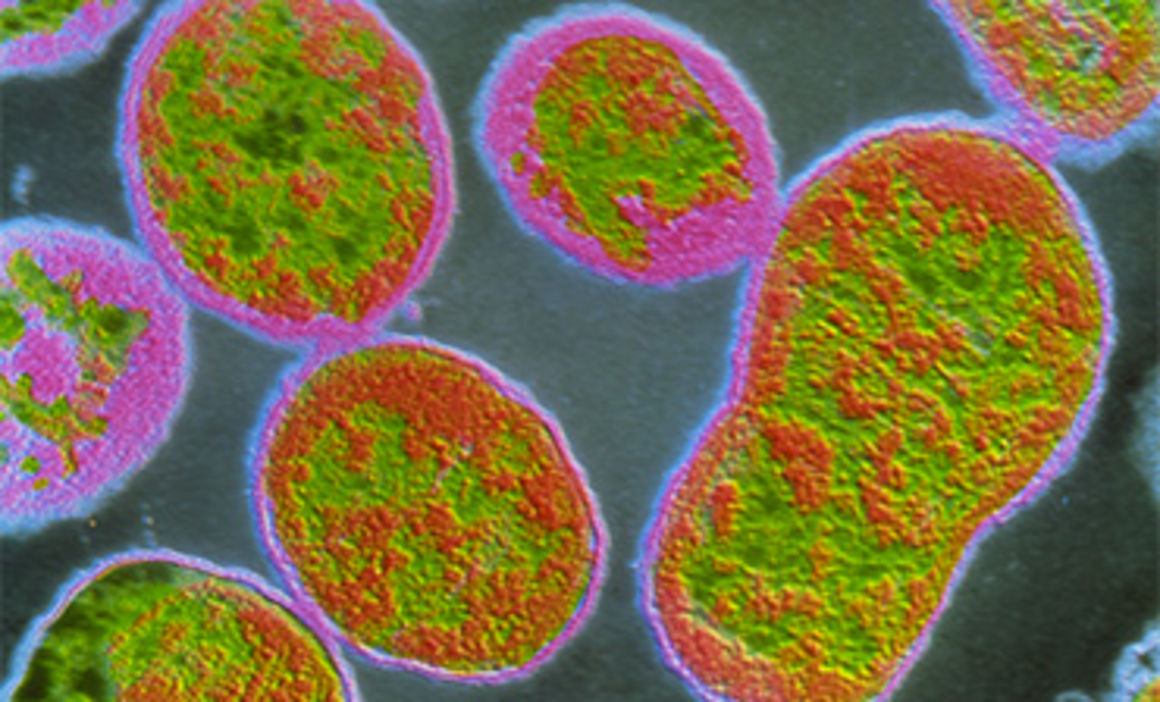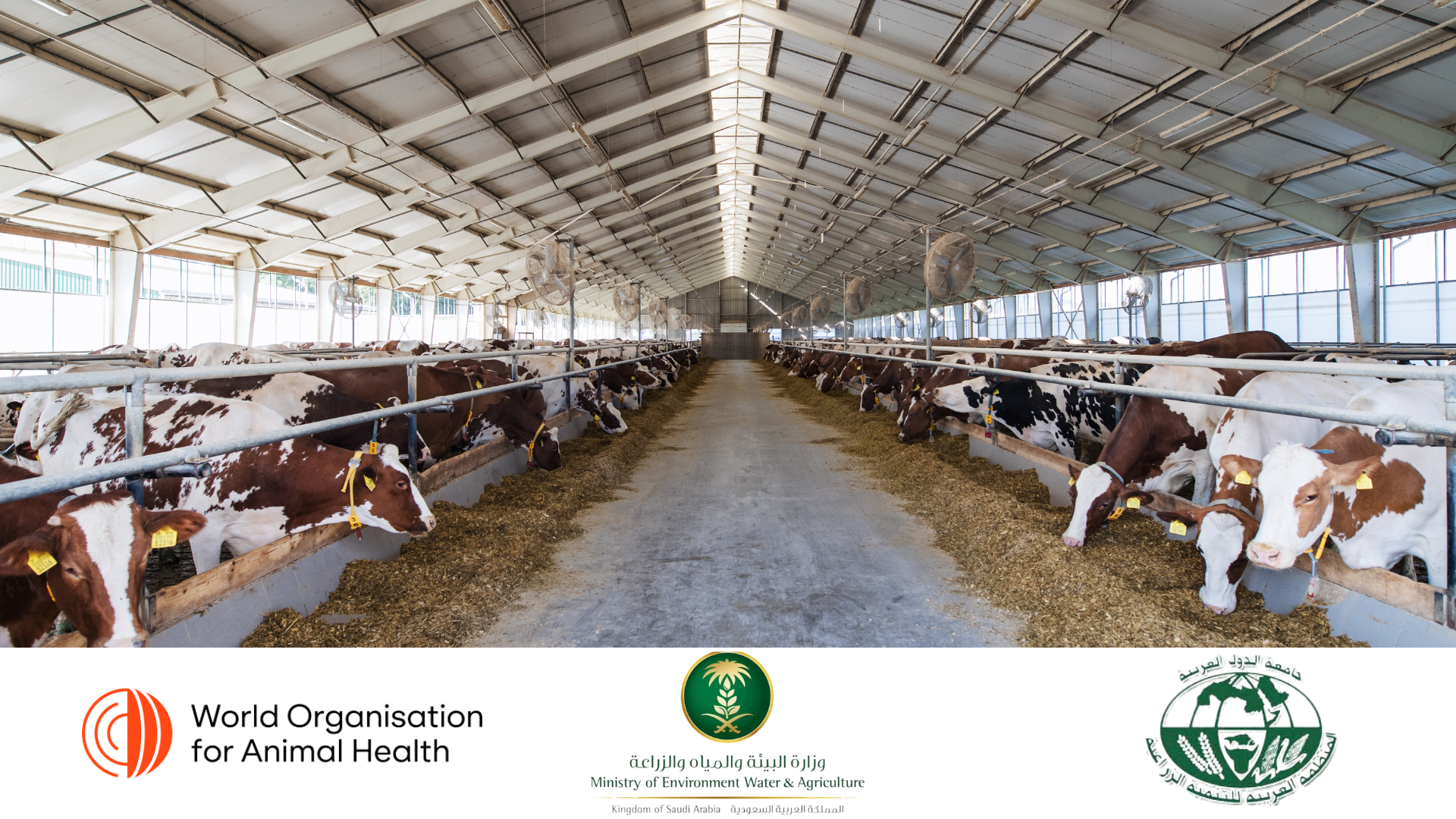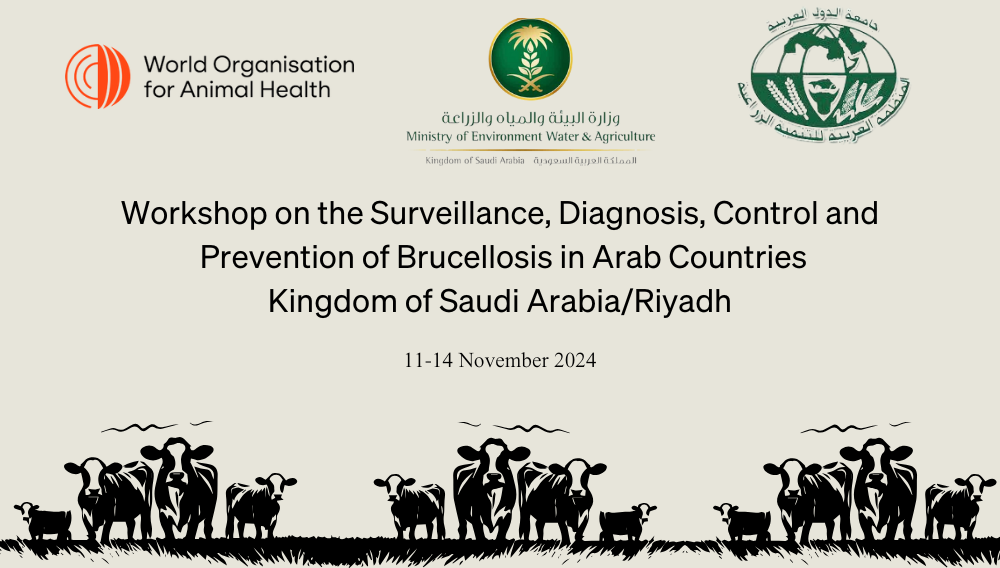
Brucellosis is a significant zoonotic disease affecting both human and animal health and is associated with considerable economic and social impacts among the poorest members of society, having a major impact on the livestock industry and public health systems. The disease is transmitted from animals to humans and causes a group of symptoms in humans that include fever, fatigue, and joint and muscle pain. and on the economic level, this disease causes significant losses in the livestock sector, as it leads to abortion and loss of productivity.
Brucellosis is widely spread among many animal species and is usually transmitted to humans through direct contact with infected animals or consumption of their products. Veterinarians, farmers, and slaughterhouse workers are more susceptible to this disease.
Geographically spread, Africa, Asia, Latin America and the Middle East have the highest prevalence of brucellosis.
In this context, the Arab Organization for Agricultural Development (AOAD) works jointly with the World Organisation for Animal Health (WOAH) to highlight the urgent need to implement comprehensive strategies to control and limit the spread of this disease by unifying the national, regional and international efforts to combat Brucellosis and considering it a transboundary disease and a priority for control within the AOAD-TADs Control Program in Arab and African regions.
Therefore, AOAD is working on implementing this workshop in close cooperation with WOAH Regional Representation for the Middle East and WEQAA Center -Saudi Arabia, to raise the capacities of Arab countries in the field of diagnosis and control of Brucellosis to protect the health of populations and ensure the sustainability of livestock production in Arab region.
Recognising the urgent need to combat brucellosis and its impact on animal welfare, the AOAD, in collaboration with WOAH, is organising a workshop to:
The workshop will take place from November 11-14, 2024, in Riyadh, Saudi Arabia. The programme will cover a range of topics critical to addressing brucellosis in animals, including:
See the Full Workshop Agenda
DAY 1
DAY 2
DAY 3


